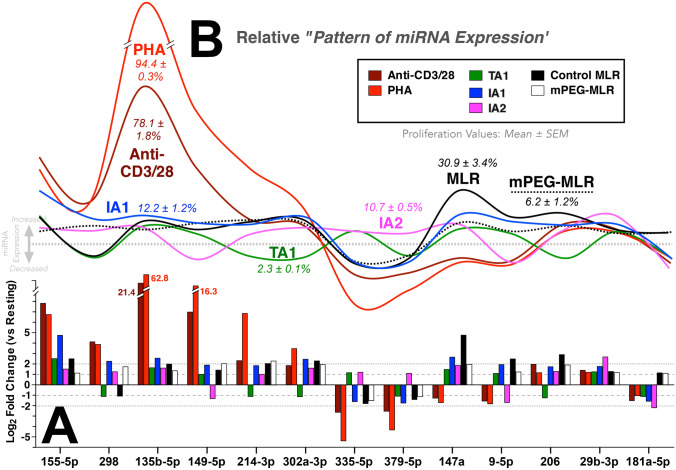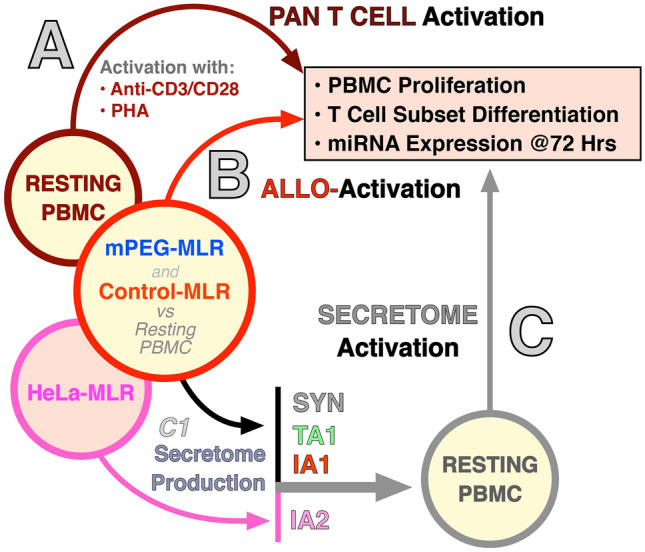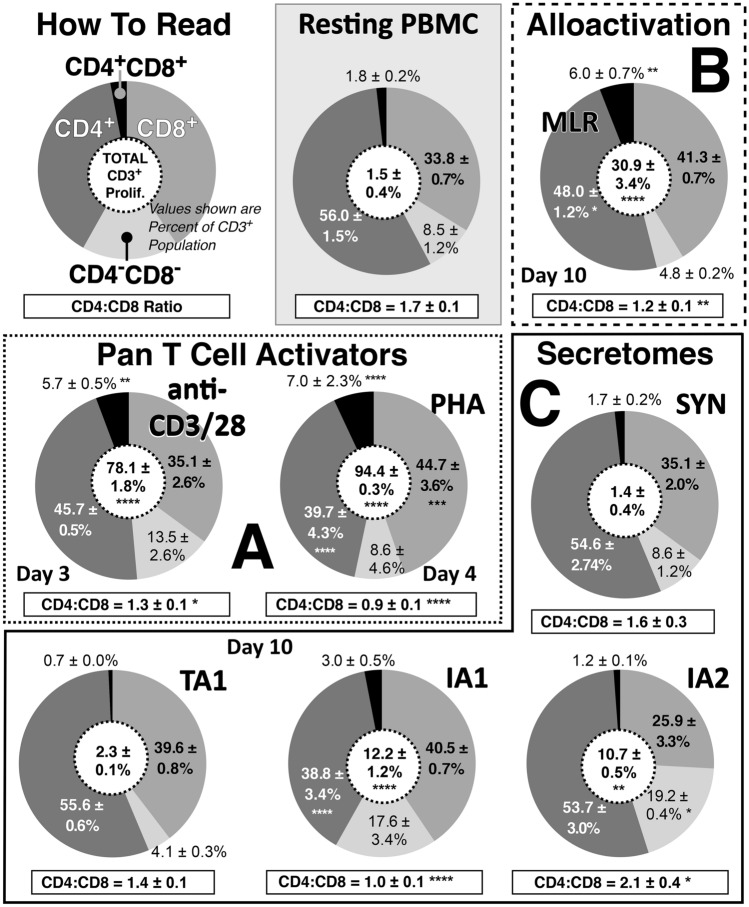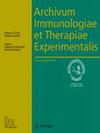Differential Leukocyte MicroRNA Responses Following Pan T Cell, Allorecognition and Allosecretome-Based Therapeutic Activation
Abstract
Effective immunomodulation of T-cell responses is critical in treating both autoimmune diseases and cancer. Our previous studies have demonstrated that secretomes derived from control or methoxypolyethylene glycol mixed lymphocyte alloactivation assays exerted potent immunomodulatory activity that was mediated by microRNAs (miRNA). The immunomodulatory effects of biomanufactured miRNA-based allo-secretome therapeutics (SYN, TA1, IA1 and IA2) were compared to Pan T-cell activators (PHA and anti-CD3/CD28) and lymphocyte alloactivation. The differential effects of these activation strategies on resting peripheral blood mononuclear cells (PBMC) were assessed via T-cell proliferation, subset analysis and miRNA expression profiles. Mitogen-induced PBMC proliferation (> 85%) significantly exceeded that arising from either allostimulation (~ 30%) or the pro-inflammatory IA1 secretome product (~ 12%). Consequent to stimulation, the ratio of CD4 to CD8 cells of the resting PBMC (CD4:CD8; 1.7 ± 0.1) decreased in the Pan T cell, allrecognition and IA1 activated cells (averages of 1.1 ± 0.2; 1.2 ± 0.1 and 1.0 ± 0.1). These changes arose consequent to the expansion of both CD4+CD8+ and CD4–CD8– populations as well as the shrinkage of the CD4 subset and the expansion of the CD8 T cells. Importantly, these activation strategies induced vastly different miRNA expression profiles which were associated with significant differences in cellular differentiation and biological function. These findings support the concept that the “differential patterns of miRNA expression” regulate the biologic immune response in a “lock and key” manner. The biomanufacturing of miRNA-enriched secretome biotherapeutics may be a successful therapeutic approach for the systemic treatment of autoimmune diseases (TA1) and cancer (IA1).




 求助内容:
求助内容: 应助结果提醒方式:
应助结果提醒方式:


